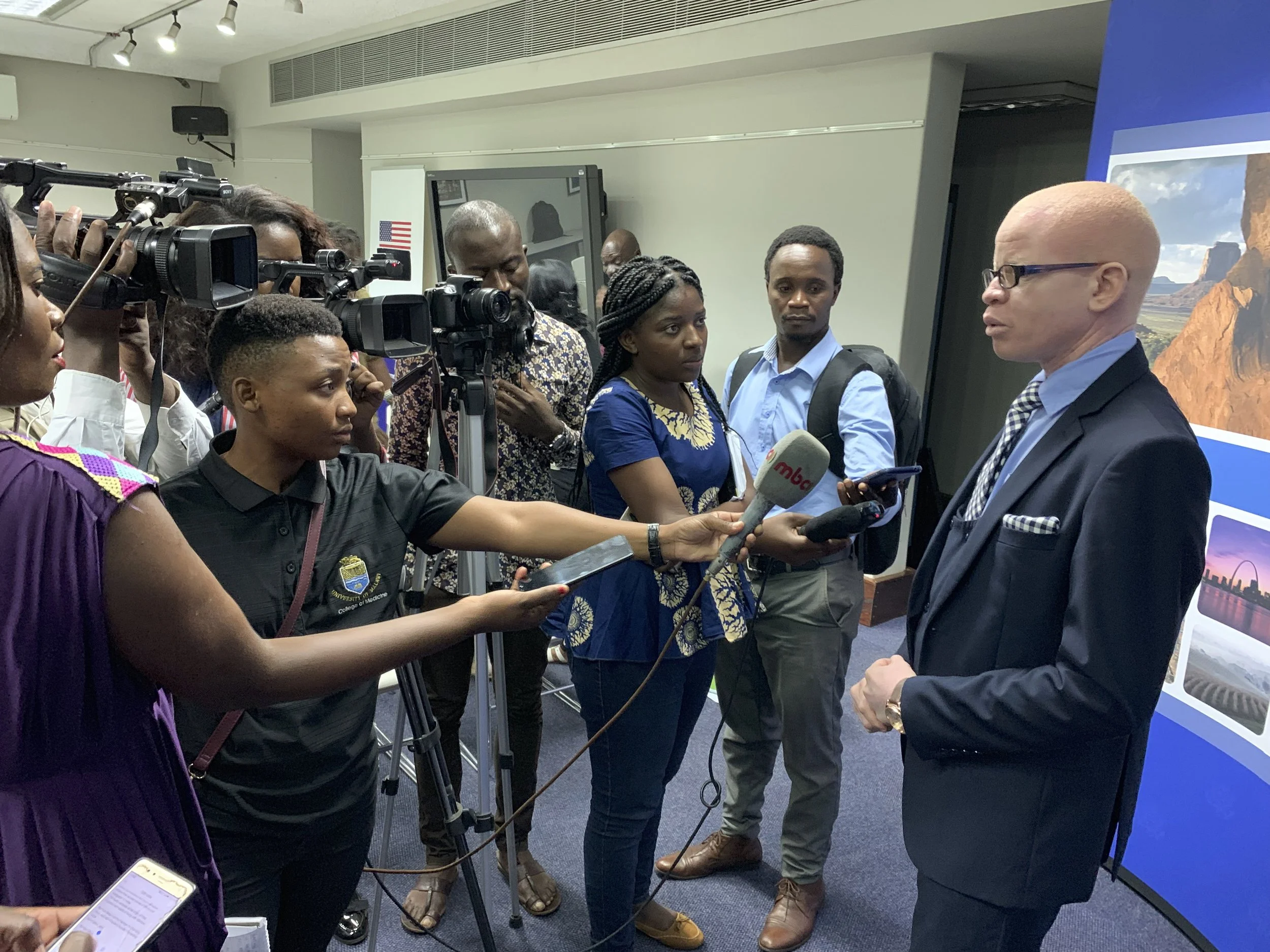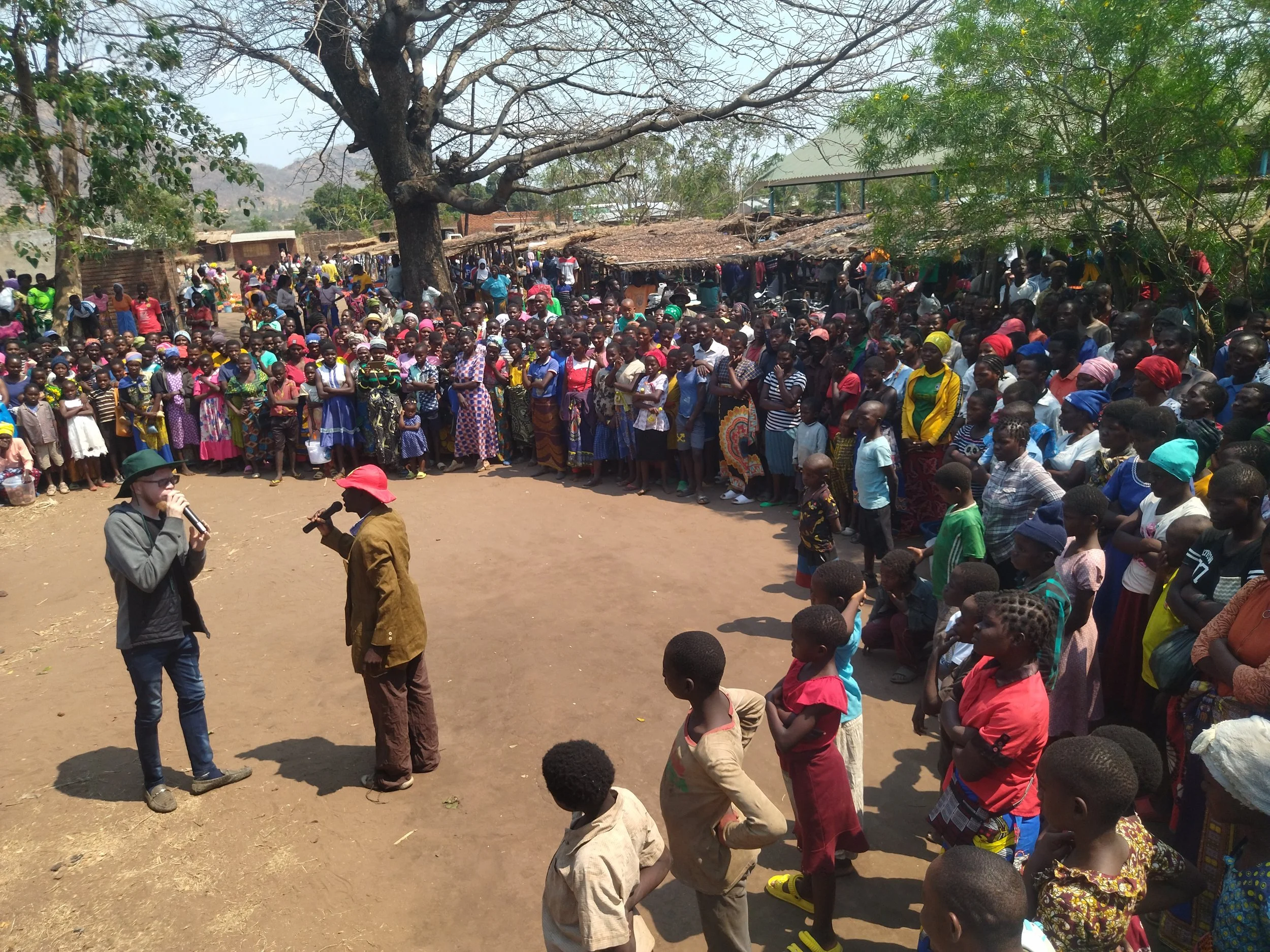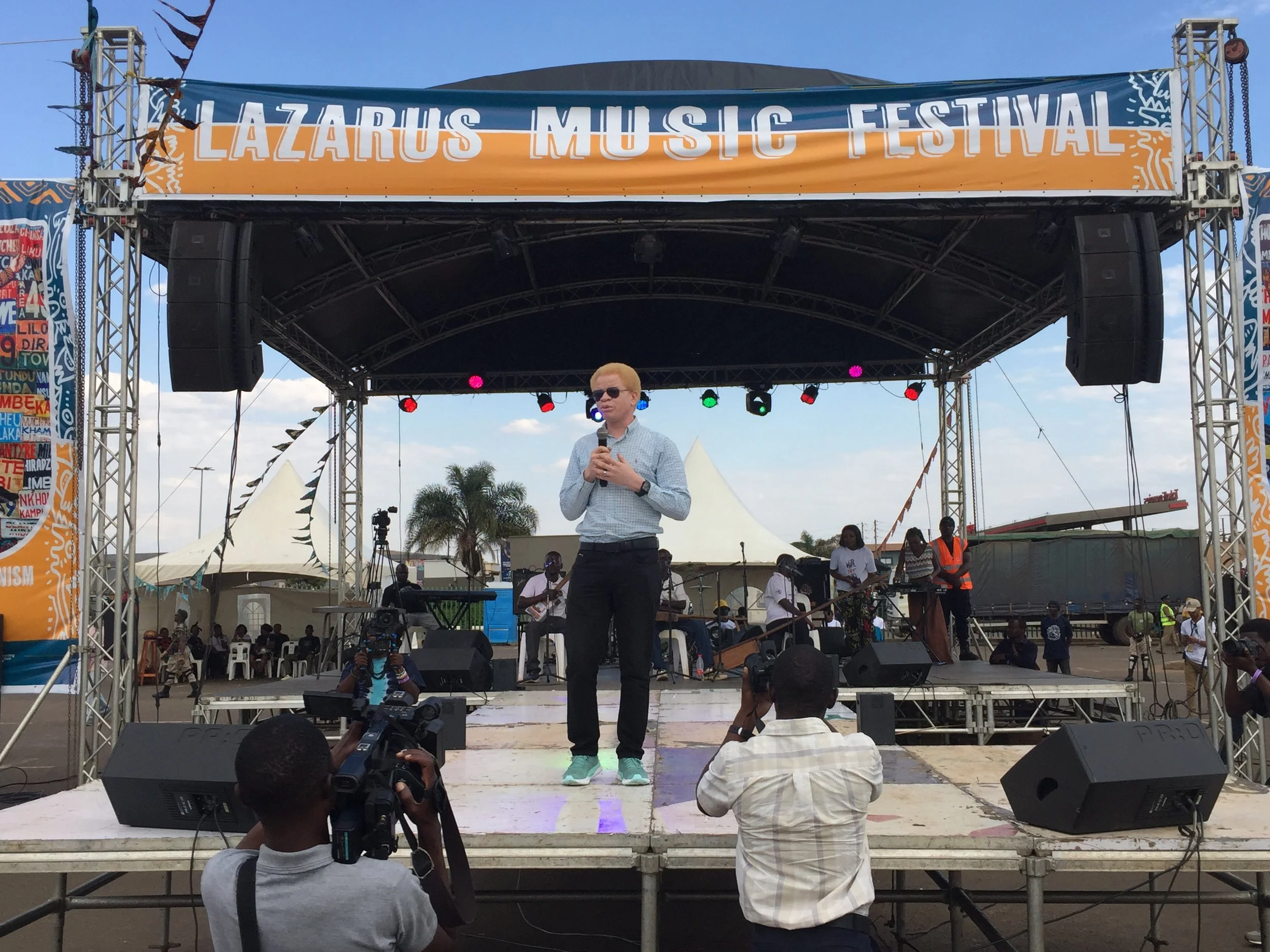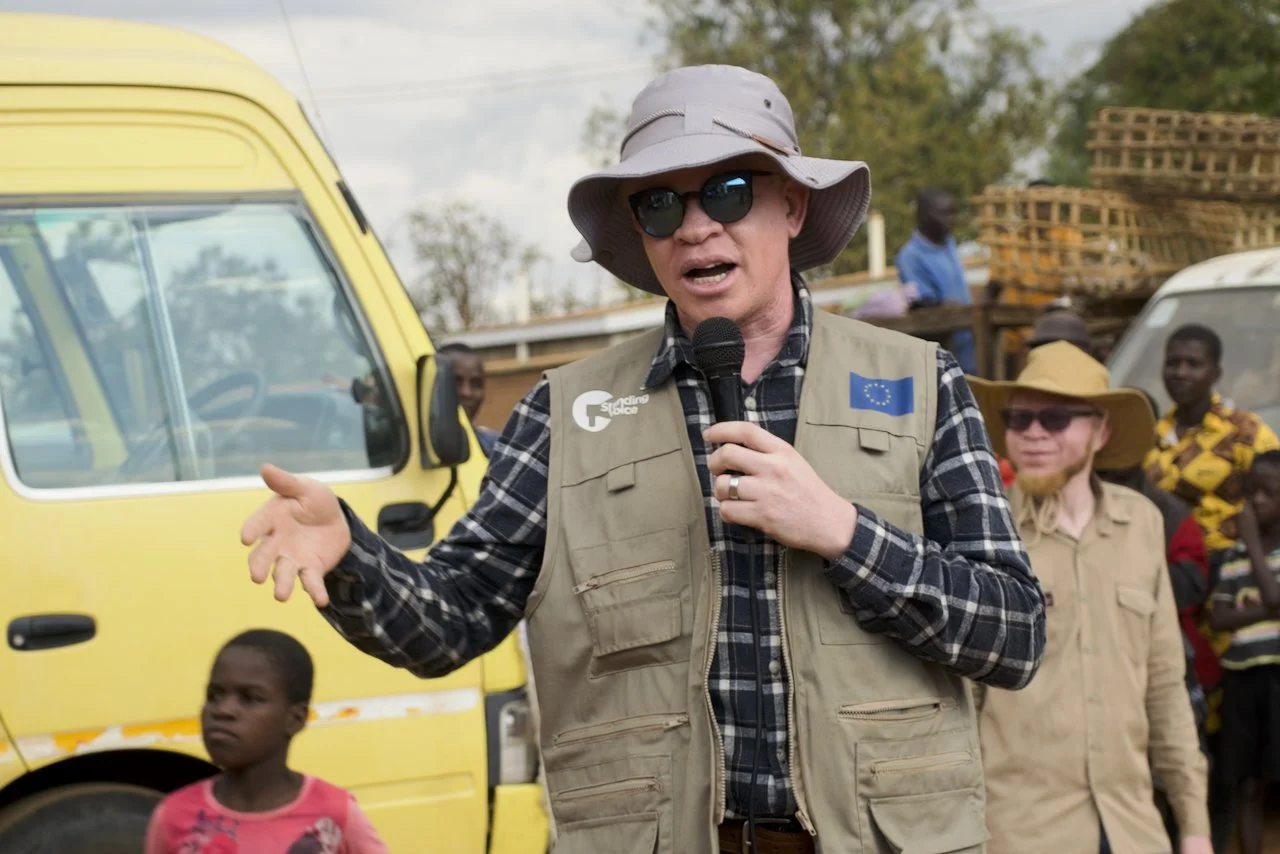ADVOCACY

Overview
People with albinism are at the heart of the movement for their rights in Africa. Defending and promoting these rights starts with changing hearts and minds. To end violence and secure equal access to healthcare, education, employment, and justice, stigma must be dismantled. This means creating opportunities for people with albinism to lead—raising awareness, building understanding, and speaking out on local and global stages.
From grassroots community engagement to the halls of the United Nations, Standing Voice has worked tirelessly to uphold the rights of people with albinism wherever they are at risk. Across Tanzania and Malawi, we train stakeholders to understand and respond to the needs of people with albinism and their families. On pan-African and global stages, we engage governments, media, and civil society to amplify the voices of people with albinism and strengthen accountability for protecting their human rights.
International Voice
Global advocacy is in the DNA of Standing Voice. Our charity was born following the global reaction to In the Shadow of the Sun, the 2012 feature documentary film directed by Harry Freeland, our Founder and Executive Director. Reaching millions around the world and screening in over 80 countries, the film catalysed a surge of international interest in the plight of people with albinism in Africa and contributed to the birth of a powerful pan-African albinism movement that continues today.
Over the last decade, Standing Voice has continued pushing beyond national boundaries to generate global accountability for the welfare of people with albinism in Africa. Awarded special consultative status by the United Nations, we are an active contributor to advocacy on albinism throughout the UN system: sharing reports of human rights abuses, issuing recommendations based on our data, and collaborating with the mandate of the Independent Expert on Albinism appointed by the United Nations. We have participated in side events, roundtable discussions and film screenings in advocacy arenas around the world, most notably ‘Action on Albinism in Africa’: a landmark consultative forum attended by representatives of 29 African countries and co-organised by Standing Voice. We have led research projects to build global understanding of albinism in Africa, and worked widely across the arts to share the stories of people with albinism and render their struggles visible. We have helped to make further documentaries on the issue, including the acclaimed BBC production Born Too White in 2017. We have partnered with groundbreaking visual artists like Camille Walala, Marc Quinn, Alex Booker, Kate Winter, and worked with the Grammy-winning producer Ian Brennan to establish the Tanzania Albinism Collective: a group of musicians with albinism from Tanzania, whose debut album White African Power was released to global acclaim and toured the UK festival circuit in 2017.
United Nations
Human Rights Council (46th Session, March 2021)
Bonface Massah, former SV Executive Director in Malawi, addresses the 46th Session of the United Nations Human Rights Council with an urgent call to protect people with albinism from escalating violence in Malawi.
Workshop on Witchcraft and Human Rights (Sep 2017)
Sam Clarke addresses the UN Workshop on Witchcraft and Human Rights in Geneva.
National Voice
Our national advocacy is transforming perceptions of albinism in Tanzania and Malawi. Our programmes in health, livelihoods and welfare are increasing the visibility of people with albinism in society and dispelling myths. y working with governments, local authorities, health centres, schools, universities, civil society, and NGOs, we strengthen social support networks and champion the inclusion of people with albinism at every level of public life. Each year, we stand with partners across Tanzania and Malawi to mark International Albinism Awareness Day, celebrating progress while highlighting ongoing challenges.
In Tanzania, Standing Voice chaired the national committee responsible for developing the country’s first National Action Plan on Albinism, a landmark framework created in collaboration with the Prime Minister’s Office and a coalition of civil society partners. Launched in December 2024, this plan provides a clear roadmap for improving health care, welfare, and economic opportunities for people with albinism, while tackling discrimination and violence. It also serves as the domestic counterpart to the African Union’s continental action plan and the Regional Action Plan established by former UN Independent Expert on Albinism Ms Ikponwosa Ero—tools that strengthen coordination among albinism organisations and provide leverage to hold governments accountable.
In Malawi, Standing Voice has also supported the development of a National Action Plan and state budget in support of people with albinism.
Local Voice
Myths and superstitions about albinism are widespread across many African countries. Our work focuses primarly on Tanzania and Malawi, where albinism is often deeply stigmatised and perceived as a curse. The bodies of people with albinism are sometimes thought to possess magical properties, able to cure disease or deliver fortune. In particular, sex with a woman with albinism is falsely believed to cure infertility or AIDS. Albinism is almost universally viewed as the ‘fault’ of the mother—a misconception that breaks up families and exposes mothers of children with albinism to ostracism and abuse.
Standing Voice works with communities to challenge these harmful beliefs and build greater understanding of the rights and needs of people with albinism and their families. We engage a wide range of partners to deliver awareness-raising events, including seminars, school assemblies, workshops, parades, celebrations, film screenings, installations, exhibitions and interactive community-based theatre, comedy and music. Through these events, we introduce alternative narratives, dispel myths, reinforce positive messages, and strengthen understanding of albinism and genetics.
We also support people with albinism to establish community groups through which they can learn skills, build an income and speak out against discrimination. Above all we create platforms of self-advocacy, equipping people with albinism and those who surround them with the tools to demand their rights and drive change locally.













